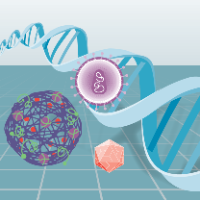Unleashing the full potential of cell therapy through RNA engineering
Cell & Gene Therapy Insights 2022; 8(4), 455–461
DOI: 10.18609/cgti.2022.069
The US Food and Drug Administration has approved Chimeric Antigen Receptor (CAR)-transduced T-cells (CAR-T cells) for the treatment of relapsed/refractory B-cell malignancies and multiple myeloma, ushering in a novel therapeutic modality that uses genetically engineered living cells as therapeutic drugs. CAR-T cell therapies on the market today are engineered by inserting CAR genes into the genome of cells using a virus. DNA-engineered cells maintain the therapeutic activity throughout their life because they are permanently modified. Further, their daughter cells carry the altered gene as the cells proliferate. In some types of relapsed/refractory blood cancers, this approach has been effective, though safety concerns remain. DNA-engineered cells carry a high chance of severe toxicity as there is not a natural ‘off-switch’ if the cells over-expand or otherwise exhibit off-target toxicity. Indeed, patient deaths have occurred due to uncontrolled proliferation of CAR-T cells. Therefore, all patients receiving CAR-T cell treatments must be strictly monitored for both short-term and long-term toxicity. This restricts the use of DNA-engineered cells only to patients with imminently fatal diseases like relapsed cancer that is refractory standard of treatment. A solution is to engineer cells with RNA rather than DNA. RNA does not integrate into the genome and has a measurable natural half-life, effectively limiting the duration and magnitude of therapeutic exposure. A defined half-life also informs the clinical protocol design for adjusting the dose and schedule of treatment to minimize toxicities. Therefore, RNA Cell Therapy is expected to provide safer alternatives without requiring cumbersome monitoring programs, and to allow the expansion of engineered cell therapies into indications beyond advanced cancer. In fact, RNA engineered CAR-T cell therapies are already being tested in an autoimmune disease (i.e., NCT04146051) as well as newly diagnosed cancer (i.e., NCT04816526). Other indications will quickly follow as safety experience with RNA Cell Therapy accumulates and new technologies make it possible to transfect billions of primary cells with one or more RNAs. In particular, the ability to engineer various cell types with multiple RNAs will lend itself to the design of novel combination products, a capacity that will be highly useful to treat complex diseases. This Expert Insight article reviews historical milestones that paved the way to the development of RNA Cell Therapy products now in clinical trials. Three examples of active clinical trials are described to show the transformative possibilities of engineering cells with RNA.
